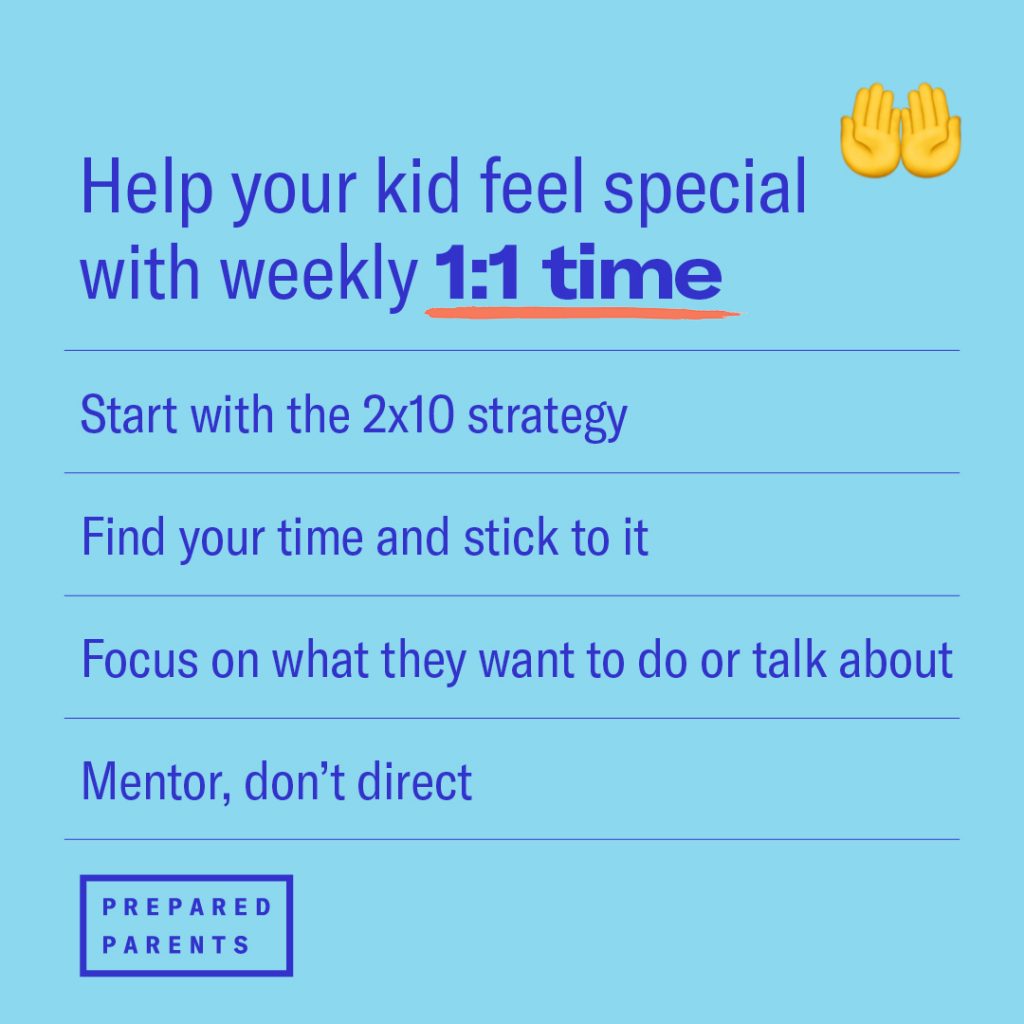
Dr. Pamela Cantor, founder and senior science advisor at education non-profit Turnaround for Children, says that routines and relationships—along with resilience—are two of the three Rs for promoting healthy social-emotional development in our kids.
What if you could make strengthening relationships part of your kid’s routine?
Routines unlock learning by helping kids and parents build predictable patterns. Those patterns create the mental spaces and habits that allow kids to be ready for learning each and every day. Some routines, like brushing our teeth each morning and night, help us engage in healthy habits, switch gears, and establish a mindset for what comes next. A routine like Check-In /Check-Out does just that.
Other, less frequent routines—like twice yearly visits to the dentist— provide a different kind of benefit. Those routine visits might help us assess our health, address existing problems, and identify issues that may soon develop. Weekly 1:1s, described here, let us routinely connect to kids in the same way.
Thousands of students across the country benefit from weekly 1:1s, most notably pioneered for nearly two decades at Summit Public Schools. Through weekly check-ins, teachers serve as long-term mentors for each and every individual student. Through these meetings, the teacher/mentor becomes the student’s advocate inside and outside of the classroom, and provides guidance and support.
When you adopt this kind of regular, routine 1:1 engagement with kids, you’re showing them they’re important. It only takes a short time each week for kids to feel safe and secure —these short bursts of 1:1 attention are essential to helping kids feel they matter. Mattering is the belief that we make a difference in the world around us. It’s measured by responses to questions like:
- How important am I to others?
- How interested are others in what I have to say?
- How much do other people depend on me?
Letting kids know they matter develops a strong bond, known as secure attachment, and learning science confirms this leads to success not only in school, but in life.
Secure attachment is a deep and enduring emotional bond that connects one person to another across time and space.
Step 1: Make it Routine
Here are three steps to kick off Weekly 1:1’s:
- Find your 1:1 time and stick to it.
When is the best time for you to connect with each of your kids? Find a moment in your schedule to spend about 10 uninterrupted minutes together. Ten minutes is a good length of time to let kids feel they matter, while ensuring adequate time for meaningful mentoring. - Start with an idea for what you’ll discuss each week.
The Weekly 1:1 downloads (above) offer guidance to help you plan for different types of weekly 1:1 check-ins. It’s not always necessary to have a detailed agenda, but it can be helpful to have a plan and reminders for how best to approach these important conversations. - Don’t be afraid to throw away the script!
While it’s okay to use a guide to prep for a routine get-together with kids, remember that every 1:1 should be unique to what a kid needs that day or week. It’s OK to throw away the script to allow your kid to talk more freely.
Self-Direction Skills
Learning how to set goals is key to helping your kids build self-direction skills. Use your weekly 1:1s to check on progress toward those goals, to discuss challenges, and to find strategies to overcome setbacks.
And remember, each get-together doesn’t have to be productive in the traditional sense of the word, with goals, to-do lists, and progress reports. An emotional 1:1 connection, to check in on how kids are doing, can be equally valuable.
Step 2: Mentor, Don’t Direct
Expert mentors are creative and skilled relationship builders. But mentoring isn’t limited to the walls of a school. Think of your role as that of a mentor, helping kids grow the skills they need to thrive, rather than that of a director, telling them what to do.
Let kids do most of the talking to ensure they’re practicing the thinking needed for effective self-direction. Spend the majority of the check-in strategically asking clarifying questions to discern factual information and probing questions to uncover kids’ thinking.Let these actions guide your time with kids: Pause, Paraphrase, and Probe!
Pause
- Express Care
- Share Power
Paraphrase
- Express Care
- Provide Support
Probe
- Share Power
- Challenge Growth
- Expand Possibilities

